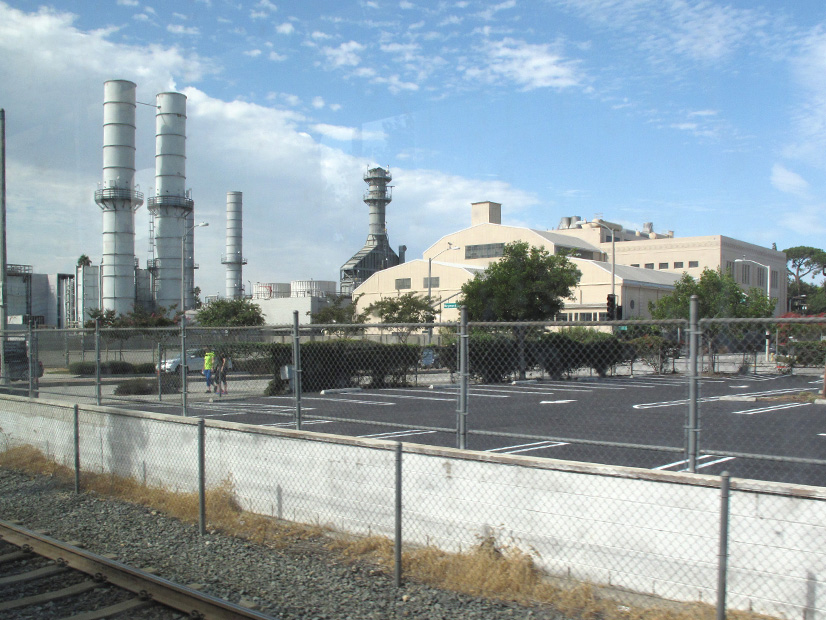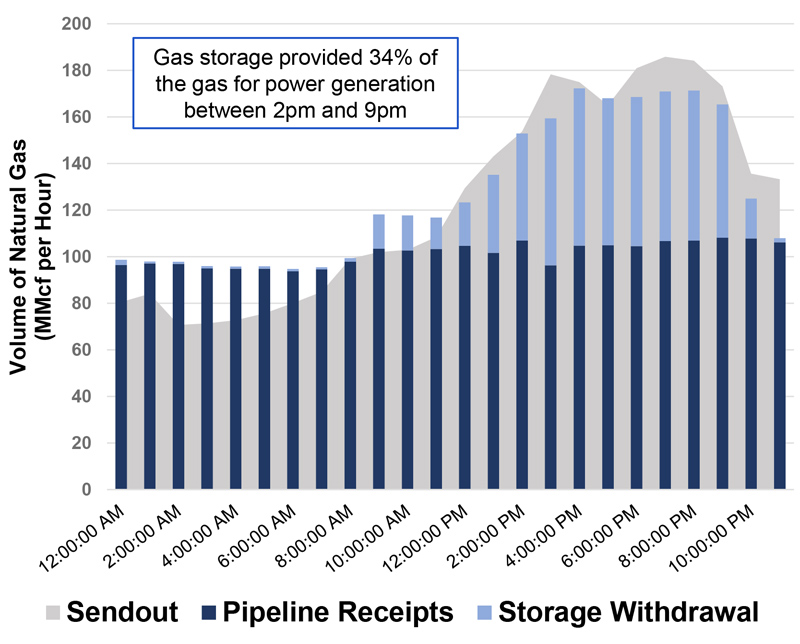
Speakers at a webinar hosted by SERC Reliability on Tuesday said that electric utilities should see the natural gas industry as a partner for ensuring a reliable electric grid, rather than an obstacle.
The message was perhaps most strongly articulated by Kimberly Denbow, managing director of security and operations for the American Gas Association, who spoke midway through SERC’s “Natural Gas and Electric Coordination Vision for the Future” webinar. Previous guests had spoken of the danger of disruption to the power grid from interruption of natural gas supplies, and Denbow directed some pointed remarks at them for portraying “the electric sector as a victim of natural gas because of its dependence” on the resource.
“Do all you [electric] policy wonks see the dependence on natural gas as a growing risk … or, maybe, is the dependence not the growing risk, but rather … the federal and state policies intended to drive natural gas out of the picture?” Denbow said, referring to decarbonization initiatives that she said painted all fossil fuels with the same brush.
“Maybe that’s the growing risk, because we know natural gas supply is readily available domestically and … internationally … and it’s just a matter of being able to get the siting of the pipeline expansion and whatnot to get that supply to you all,” she added.
Brian Fitzpatrick, principal fuel supply strategist at PJM, echoed Denbow’s concern over government decarbonization policies, saying that the phrase “rapid decarbonization” sends “chills down my spine” and that he would prefer “thoughtful or smart decarbonization.” He pointed out that PJM “has been looking at [decarbonization issues] with a microscope” for the better part of a decade and found that a diverse fuel mix, including natural gas, was crucial to ensuring reliable electric service, as Denbow argued.
To illustrate why natural gas will continue to be essential to preventing severe outages, Denbow pointed to the events of Aug. 17, 2020, when Southern California was in the grip of a severe drought, along with both its hottest August on record and the worst wildfire season in modern history. As the afternoon heat increased cooling loads and raised demand for power, smoke from the fires led to decreased output from solar plants.
 Hourly supply and demand on the SoCalGas system for Aug. 17, 2020 | SERC
Hourly supply and demand on the SoCalGas system for Aug. 17, 2020 | SERC
Natural gas production helped fill the generation gap, and Southern California Gas was able to tap stored gas supplies when the pipelines couldn’t keep up with demand. Denbow said the ability to tap storage was a critical difference between gas and other “just-in-time” power sources such as solar and wind, because it allowed the utility to ramp up generation quickly, unlike weather-dependent renewable resources.
Denbow acknowledged that, as other presenters pointed out, disruptions to natural gas supply from extreme weather, cyberattacks and other issues can lead to problems for the electric grid — as occurred in the winter storms of February 2021 in Texas and the Midwest. (See FERC, NERC Share Findings on February Winter Storm.) But she said the best way to overcome such challenges is with “communication, coordination and transparency” between electric utilities and gas distributors.
Most importantly, she urged grid planners to recognize that their industry faces the same fundamental challenges as the gas sector. She said the two industries could provide an important input, based on facts and experience, to a debate that is too often driven by the most negative, extreme voices.
“Overly ambitious, politically driven time frames, disconnected from the realities on the ground, are insufficient to help you all with re-engineering interconnections [and implementing] new investments,” Denbow said. “Layer onto this ongoing supply chain delays, as well as siting and permitting issues, and we have a formula for slow progress of emerging projects, not just on the gas side, but also on the electric side. How difficult do you think it will be to get overhead power transmission lines permitted, when below-ground, out-of-sight pipelines can’t get permitted?”

